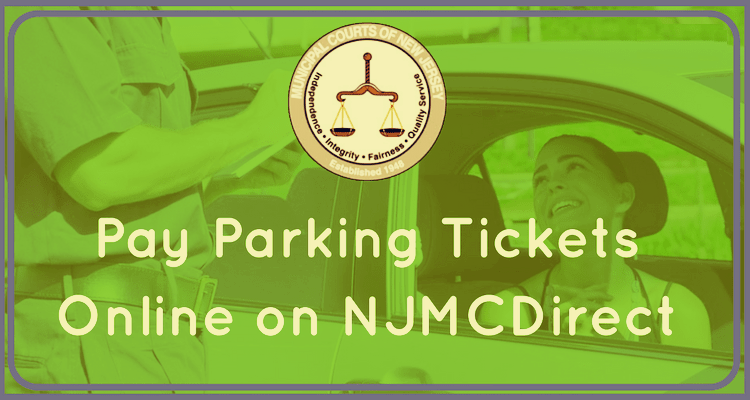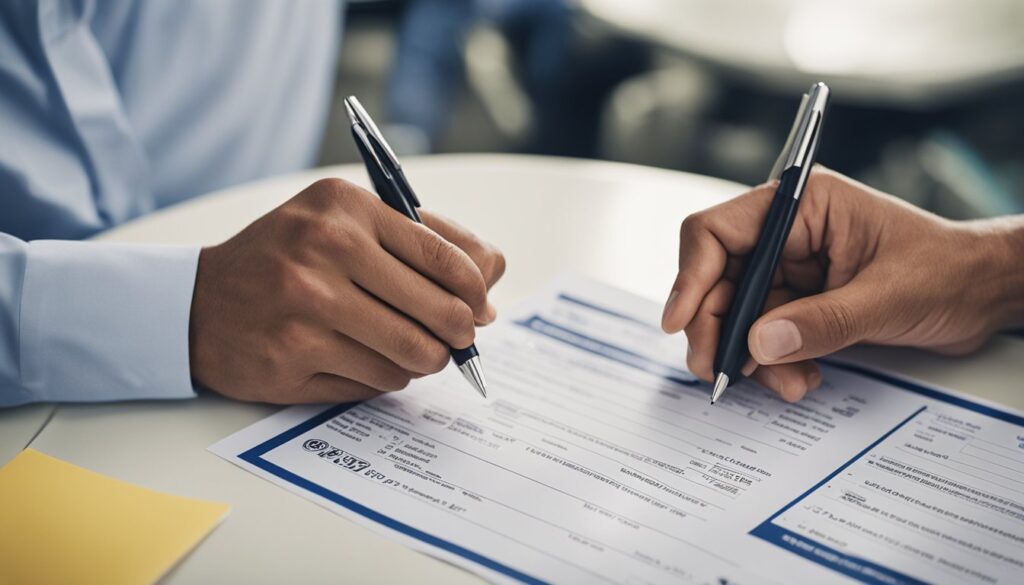If you buy a car from a store or a private seller in New Jersey, the process of registering it is the same.
Sometimes, shops take care of the registration for brand-new cars. But if someone buys a used car, they need to make sure the car is properly registered to avoid legal problems.

It’s important to remember when the license expires so that you can renew it on time, because penalties can happen if you don’t.
When it comes to car plates and registration, New Jersey has clear rules.
New Jersey law says that you must follow these steps, such as how to update or renew your license through the New Jersey Motor Vehicle Commission.
These rules must be followed by drivers to keep their cars safe on the road. Using NJMCDirect makes tasks like getting new license plates or a registration less daunting.
Contents
NJ Pre-owned Vehicle Registration

There are a few important steps you need to take to make sure you follow the rules when you register a used car in New Jersey.
The New Jersey Motor Vehicle Commission (NJ MVC) needs certain paperwork whether you buy from a private person, a dealership, or an auction.
Important Documents:
- Title of the Vehicle: It needs to include complete details of both the seller and the buyer.
- Registration Application: Utilize Form BA-49, which can be acquired from NJ MVC branches.
- Insurance Information: Present valid New Jersey insurance details, including the policy number, insurance provider, and proof of coverage.
- Dealer Documents: If bought through a dealer, the dealer reassignment document must be submitted.
- Power of Attorney: If applicable, include a Power of Attorney document for representation.
- Financial Information: For financed or leased vehicles, provide lender details and financing statements.
- Business Registration: For business registration, an MVC Entity Identification Number (EIN) is required.
- Auction Purchases: When purchased from an auction, a notarized bill of sale, VIN tracing, and the most recent registration are necessary if the vehicle comes from a state not issuing a title.
- Transfer from Other States: If missing a tax stamp but with a title, a purchase order is essential.
Fees and Taxes:
You will need to pay the required fees, which may include a normal registration fee, possible lien fees, and any sales tax that applies.
These fees may be different depending on the type of car and the amount of the lien. Talking to the New Jersey Division of Taxation can help you figure out how much sales tax you still owe.
Registration Process:
Go to the NJ MVC’s Registration/Title office with all the necessary paperwork and payment to get things done.
A Certificate of Ownership Application is needed for cars moving from one state to another.
Required Inspections and Insurance:
In New Jersey, used cars have to be inspected before they can be registered or within 14 days of registration to make sure they meet safety and emissions guidelines.
Legal liability insurance and personal harm insurance are both required.
The first registration is good for four years. Registered owners get a warning three months before their license expires to make sure they renew it on time and follow New Jersey law.
Making sure that these steps are carefully followed will make the registering process go smoothly.
How to Renew NJ Vehicle Registration

In New Jersey, it’s easy to make sure that your car registration is up to date.
For renewal, you will need your Social Security number, your insurance ID card, a credit card, and the letter of renewal with a PIN. To help you finish the process, here is a clear outline:
- Visit the New Jersey Motor Vehicle Commission’s Website
Go to their website to find the option for Online Services. - Choose to Renew
Click on the Renew Vehicle Registration option. - Enter Your PIN
Use the PIN from your renewal notice or form on the login page. Verify that your registration is valid and not suspended in another state. - Complete Payment
After PIN verification, the registration fee will appear. Note there is an additional $1.50 for service fees. Use a credit card to finalize the payment and complete the renewal.
You can get your PIN back by going to the Registration Renewal PIN Lookup page if you lose it or don’t get it.
To get the PIN, you will need to know things like your license plate number, VIN, or driver’s license.
Avoid Late Fees:
If you don’t renew on time, you might have to pay a $25 late fee. To avoid this, repeat before the date it runs out.
During this time, vehicles may also need to have their emissions checked.
Alternative Options:
Appointments can be made at any local MVC office for people who would rather do business in person.
Money order or check can be used to pay. Before you send your renewal, make sure you bring the renewal notice and the return envelope.
NJ Replacement Car Registration Steps
In New Jersey, the first step in replacing a car license is to go to a local New Jersey Motor Vehicle Commission (MVC) office.
As their main form of ID, the person making the request must show a legal New Jersey driver’s license.
If the car has more than one owner, the request can only be handled by the owner or a co-owner. working on it.
Required Documents and Actions
- An insurance ID card from New Jersey must be shown by the owner. This card shows that the car has insurance right now.
- To get a car registered, you need to fill out a BA-49 application form. All the information on this form needs to be correct, and if there are co-owners, they all need to sign it.
Important Details to Keep in Mind
- To get a duplicate registration, there is an initial fee of $5.
- This fee can rise to $11 if the original registration is lost within the first three years of its four-year term.
Specific Cases
- For those with leased cars, getting a replacement registration requires prior permission from the leasing company. This includes a Power of Attorney and a document that allows the lessee to request a replacement.
- After receiving permission, the lessee should take their valid driver’s license, proof of insurance, and the filled-out BA-49 form to the MVC.
Lost Car Tag Replacement
Not having a car tag is against the rules, so quickly replacing one is crucial. This process may also require:
- Online payment of any fees through NJ EZ Pass or Njmcdirect.com.
Owners must always have up-to-date proof of insurance with the policy number on hand to make sure their car is always covered.
If this information changes, like your writing address, you need to make it official before you apply for a new registration.
People with personalized license plates may need a different type of registration and pay a different fee. So, it is very important to let the MVC know during the replacing process.
Getting New Jersey Vehicle Plates
Steps to Get a Replacement Plate:
People who own cars should quickly do certain things when a license plate is missing or broken.
The first thing you need to do is file a police report saying that the plate is lost or stolen. During the replacing process, this report is very important.
The next step is to go to the New Jersey Motor Vehicle Commission (MVC).
People must fill out important paperwork during this visit, usually the Plate Status form (BA-1) or a car registration form. To prove who you are, you must bring a legal form of identification with you.
When the plate is only slightly broken, it needs to be given to the MVC.
People who already have a plate do not need to fill out the SPU-89 form if they want to change the number on it.
Costs and Additional Details:
There is a $6 fee to replace a regular plate. For unique or special plates, the price to change them could go up to $11.
There is usually a ten to twelve week wait for the new plate to arrive.
While you’re waiting, it’s important to have all the paperwork that shows a repair is being made. This safety measure helps keep you from getting fined during this time.
To avoid driving violations, you should also return any damaged plates to the MVC.
It’s important to know that the fee for switching a plate is not the same as any fees that might be charged for changing the title. If you are only changing a lost or broken plate, you do not need to pay for a title change.
Keeping these things in mind will help the process of getting back to road readiness go more smoothly.
Family members who have extra license plates need to follow the same steps if they need new ones. This will make sure that all of the vehicles are properly registered.
By following the instructions, car owners can quickly and easily get new license plates while still following the law and staying safe on the road.